

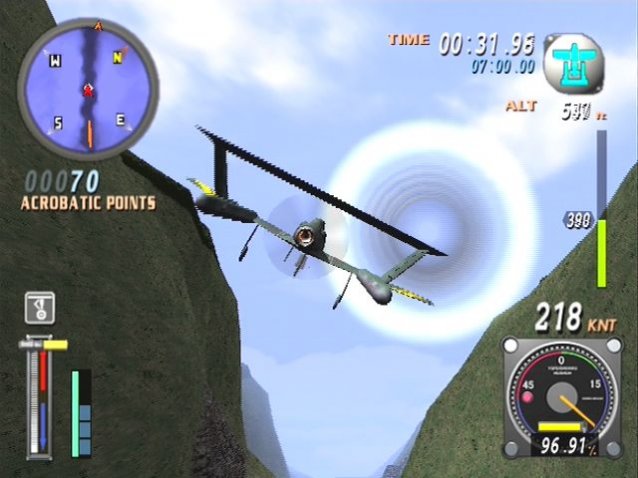
Difficulty, like ice cream, comes in many flavours. There are games that are difficult because they rely on twitch reflexes and muscle memory. There are games that are difficult because their puzzles require logic, or problem-solving, or lateral thinking. There are games that are difficult, not because of the action inside of the game, but because of outside factors. Pantsoiling horrormonger Imscared and once-a-day monk 'em up VESPER.5 are difficult because they ask the player to first overcome something inside themselves. Then there are games that are difficult because their designers wanted to cause you actual bodily harm, which is the only explanation that I have for Vechs's Super Hostile series.
I think the reason roguelike mechanics have become so popular in recent years is because they offer a way of making a game difficult without it feeling unfair. Take the wonderful Spelunky: when I die because I blundered into an arrow trap, or got on the wrong side of a yeti, or fell down just a hair too far, I don't feel like Derek Yu was out to get me personally. I feel like I cocked things up. Maybe I jumped wrong, or got way too involved collecting gems, whatever: next time, I know that I'll do better.
I was playing an old game lately that put me in mind of that same pleasing type of difficulty – Sky Odyssey, for the PS2. Released in the year 2000, Odyssey's rather like the modern roguelike mashups in that it really defies genre: partly flight sim, partly action-adventure, partly racing game.
And, as you might expect, it's difficult. Here's how I died the first three times:
And all of this was during the tutorial. It's a completely different story when the game is trying to kill you – which it does on the very first adventure map. Some of the hazards you encounter on the euphemistically-titled “The Adventure Begins” include:
Thankfully, level #2 provides a change of pace: instead of getting crushed by falling rocks, you now have to refuel from a moving train as you gradually get closer to exploding.
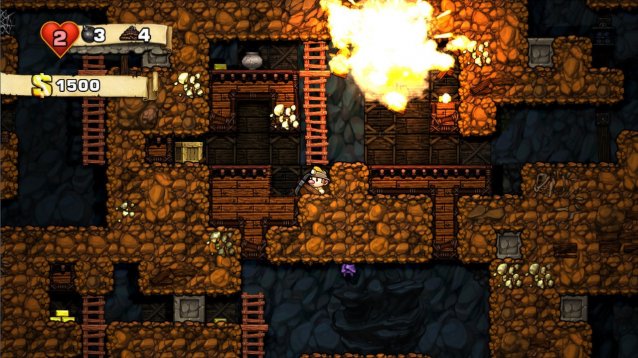
But, despite all that, I still had that familiar feeling that I was the one responsible for all my failures. And I think the reason is, in Sky Odyssey, as well as in games like Spelunky and FTL, the player's skill is the most important limiting factor on success. In Spelunky, you can have a shotgun, and a jetpack, and all the ropes and bombs in the world, and if you fail to get out of the way of a Crush Trap you're still always gonna die. In FTL, you can have a badass crew and a bunch of super awesome guns, but if you don't have a keen grasp of battle strategy, the final ship will kill you, guaranteed.
Similarly, in Sky Odyssey you can get faster planes, and upgrades that turn your craft into a well-oiled aviatin' masterpiece. But I've yet to find an upgrade that will stop you from exploding if you faceplant a canyon wall. (Oh, and although the game is broken into stages? You aren't free to save the game anywhere during a mission, and most of the time, there aren't any checkpoints either. All of which means that when you do lose, it represents a significant setback – maybe as much as 10-15 minutes of your time. And failure is total – no exp, no money etc. is carried over when you lose.)
There are other reasons why Sky Odyssey is this particularly pleasant flavor of difficult: the game's systems put pressure on the player in the hopes they'll mess things up. Levels in Spelunky and FTL have a pincer attack of pressures: time pressure (get out of the stage in X minutes / X amount of turns, or face deadly enemies) and resource pressure (bombs/ropes/items/cash; fuel/droids/items/crew/cash) meaning you have to balance short-term with long-term survivability. Do I play it safe now, or do I take a risk knowing it could help me later on?
Sky Odyssey's pressure is of a more self-imposed variety – not exactly the same flavor, but the same family of flavors (say, raspberry instead of blueberry). When you complete a stage in Odyssey, the game gives you a rank, which ranges from D-A+. This rank is determined by the number of points you score, and whether or not you completed the stage within the given time. You get points for things like: flying through rings, doing stunts, not bashing your aeroplane to shit. You get points for how fast you fly the stage too, but here's the kicker: if you go over the time limit, you'll always get a D.
Getting a high ranking is good, because it puts a shiny letter on the map (yay!) and unlocks upgrades for your plane. But getting a high rank also means you end up doing stupid things: flying an inch off the ground to rack up acrobatic points, darting through a checkpoint ring above a deadly geyser, dialling the throttle to 11 as you dodge rocks in a ravine. And so you end up wrestling with the same sort of long-term/short-term problem as you do in the other games: do you fly the level safely to maximise your current survivability, or do you fly to get a good ranking, which might snag you an upgrade to make life easier later on?
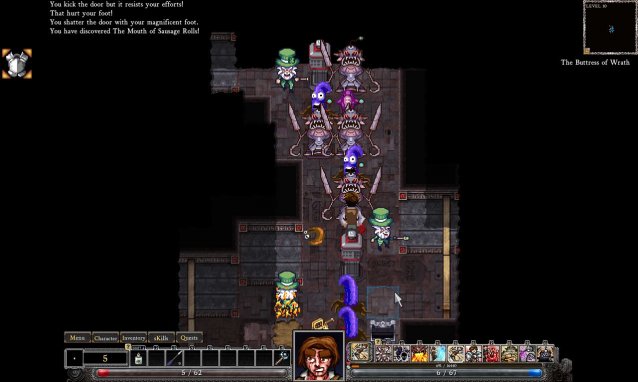
Which brings us onto greed. I don't know about you, but greed is the #1 reason that I die in roguelike games. I'm obsessed with collecting all the items on every floor, not really because it's a great idea, but because it feels really good to collect all the items. (I don't know – maybe it's because I was exposed to Pac-Man at a formative age, but there's something so satisfying about a screen devoid of collectibles.) And so I die time and time again in Nethack, and Dungeons of Dredmor and Spelunky. And Sky Odyssey is no different.
“I'll just fly through one last checkpoint ring”, I think, and pitch hopelessly into yet another ravine wall. (Sky Odyssey loves its ravine walls. I shit you not, 90% of the game takes place inside a ravine,)
Which brings us onto our final flavor: improvisation. Some of the best bits in roguelikes happen when you're out of your comfort zone. You make one small mistake, and – surprise! - you're in a terrible situation: surrounded by zombies, or strange screaming babies, or a sun that's vomiting flares in your general direction. But somehow, impossibly, wonderfully – you escape by the skin of your teeth. This is the stuff that legends are made of.
And Sky Odyssey does this too! One small mistake – oversteering just a teency bit, or trying to gain altitude by an angle that's a fraction too steep – snowballs out of control: suddenly your plane is stalling, or you're clipping towards a Very Pointy Thing at altogether entirely too many mph.
I remember, I was flying the “Over The Falls” mission - this horrible fifteen-minute monster. Before the stage begins, the game slaps pontoons to the bottom of your plane, making it fly like something approximating a concrete catamaran with wings. Anyhow, it's ten minutes in, and I took a wrong turn and had to climb suddenly up the side of a waterfall. But I was going too slow to make the climb, and so the engine stalled. Crap. I wrestle with the controls and manage to get the nose pointing down again, thinking I'll pick up enough speed to break out of the stall. It doesn't work. I bet it's those bloody pontoons, I curse inwardly. But as I plummet face-first into a watery grave, I remembered – pontoons! I've got pontoons! And so I pulled up slightly, and made an emergency landing on the water. From there, I was able to take off again without too much trouble. And not a scratch to show for it.
Sky Odyssey has plenty of moments like these. Crucially, it's not procedural – you can memorise where the game's set-pieces are – but that never diminished the joy I felt when my engine first caught fire, or I dumped my fuel to try and make it across a mountain summit.
One of the things that makes Sky Odyssey so special is how confident it is in its difficulty. Although it's definitely hard, it doesn't try to confine its appeal to only the hardcore player. That's why it has so many game modes. You want a story? There's adventure mode. You want to fly fast? There's Target mode. You want to draw pretty pictures? There's Sky Canvas. You just want to fly a plane about as long as you want, because flying a plane feels really cool? There's Free Flight mode.
Before I finally clam up about this ancient game, let me share with you this awesome quote from Sky Odyssey's lead designer, Mitsunori Shoji. He was asked about his thoughts on the future of gaming:
I feel that game creators will have a wide variety of visions for the future, and that we will see more and more variety as we move forward. Personally, I feel it will be important to provide "games that provide entertainment for all audiences". Recently there seems to be a trend where games are targeted to specific users or age groups. Hopefully in the future we can provide users with games where players of any definition will be attracted to a wide selection of games, and hopefully we can reach out to a wider range of game players.
[...]
If users are saying "I’m interested, but I cannot play these games", then this means users do not really have a wide selection of games available to them. I think the industry will go in two directions; one where "games are targeted to specific users or age groups" and the other where "games provide entertainment for all audiences". Once this happens, I feel that we’ll be able to say that Gaming is Entertainment. I understand this will be a very difficult task, but I hope that, I can take part in tackling this challenging proposition.
He said that nearly fifteen years ago, but it's still relevant: just because a game is hard, it doesn't mean that it can't aim for a wide appeal.
To me, one of the biggest downsides of playing a difficult game is that it's often tricky to know if it's going to be worth your time. Now, though a lot of people say this, it kinda bears repeating: thanks to the internet, discussing games, distributing games, discovering games – became more open. And it got easier. We're moving towards the future Mitsunori Shoji foresaw, where games make good on their promise to “provide entertainment for all audiences”. So, I want to take the time to reassure you: Sky Odyssey may be difficult, but it's a delicious flavor of difficult. And it cares about more than just one type of player's pleasure.

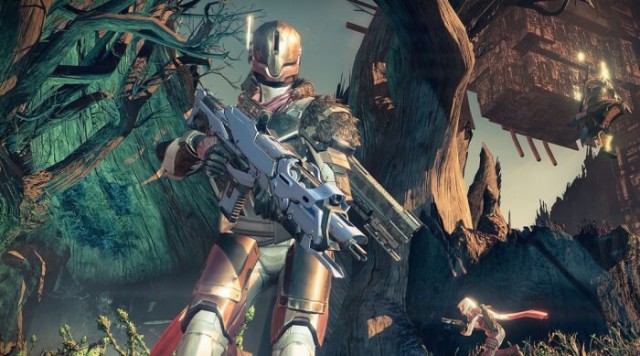
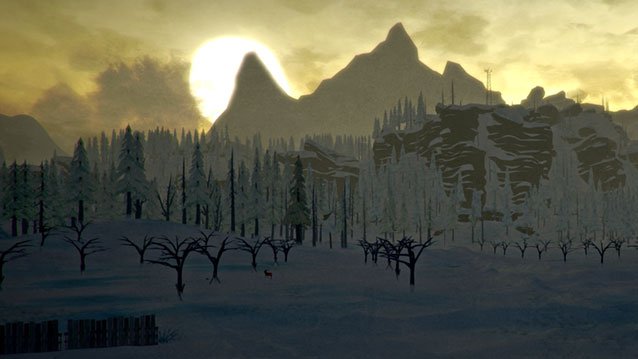
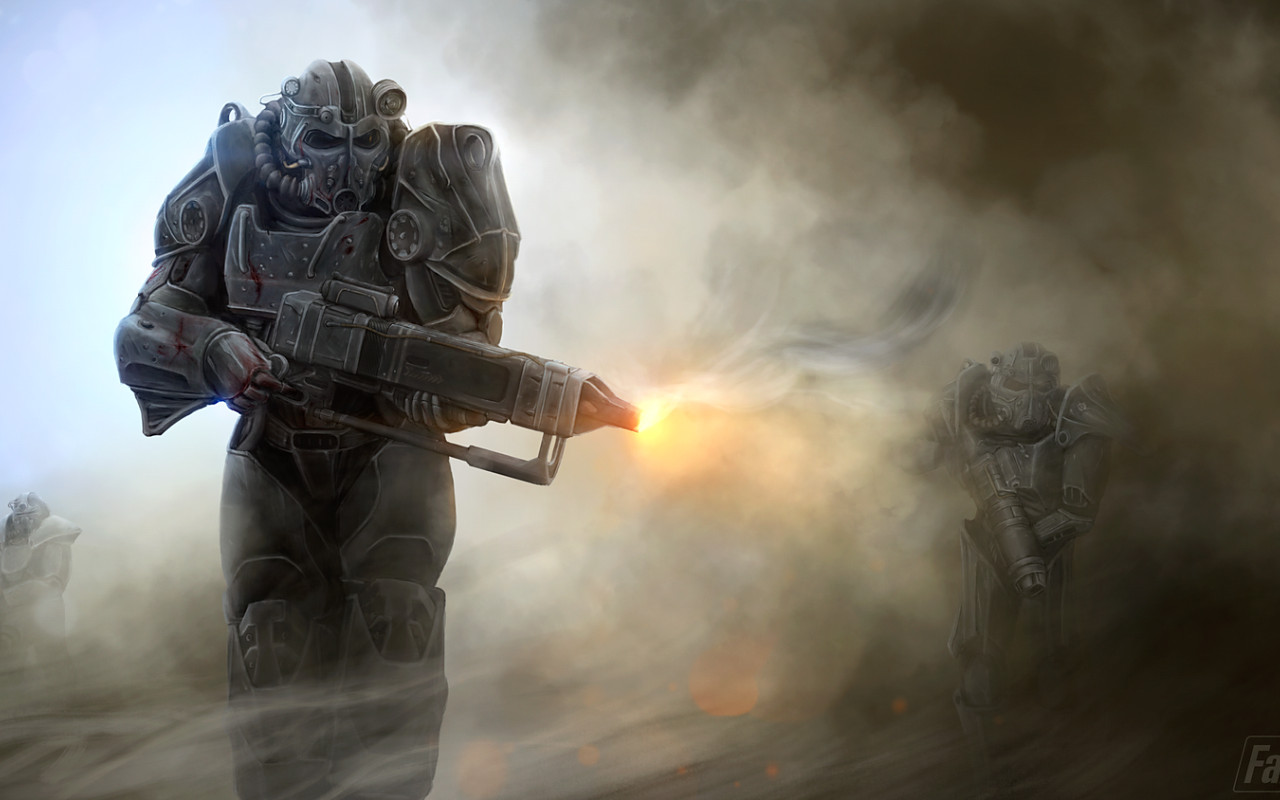
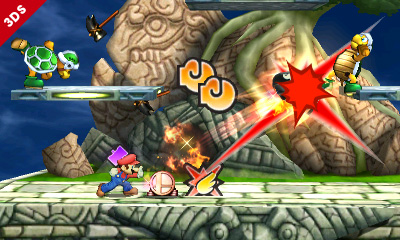 Super Smash Bros for 3DS Smash Run Tips
Super Smash Bros for 3DS Smash Run Tips Get a $20 Credit When You Buy a $35 Chromecast Now
Get a $20 Credit When You Buy a $35 Chromecast Now Firefox's Website Suggestions Changed: Here's How to Revert It
Firefox's Website Suggestions Changed: Here's How to Revert It Escape the Dungeon Walkthrough
Escape the Dungeon Walkthrough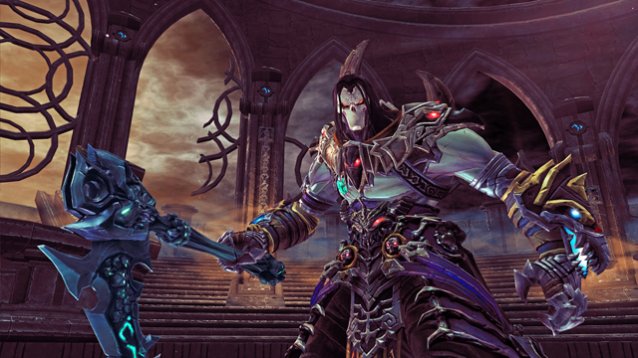 A Broken Industry: An Interview with Xander Davis, Darksiders 2 UI Designer
A Broken Industry: An Interview with Xander Davis, Darksiders 2 UI Designer